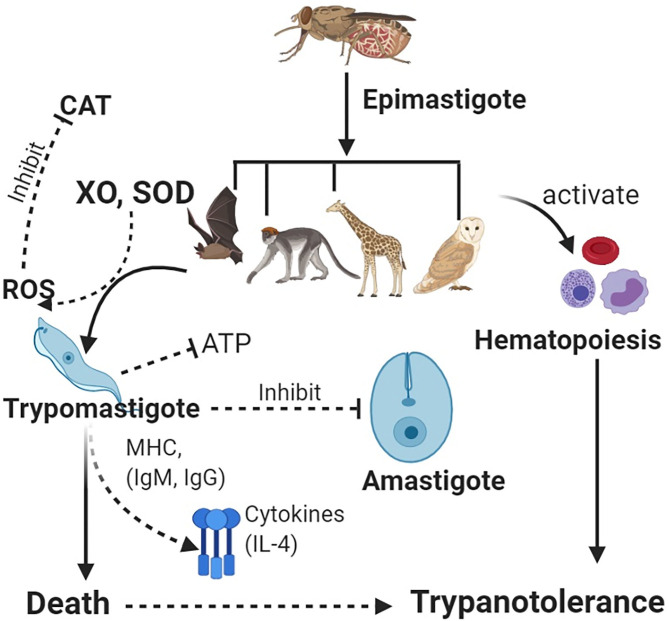Figure 1.
Vectors carrying epimastigotes infect wildlife host species. Epimastigotes transform into trypomastigotes in blood. Host enzymes [e.g., xanthine oxidase (XO) and superoxide dismutase (SOD)] increase production of reactive oxygen species (ROS) such as hydrogen peroxide, which helps clear the parasites, while antioxidant enzymes such as catalase (CAT) lead to increased parasitemia. Immune system activation leads to production of antibodies and cytokines, which neutralize trypanosomes. Inhibition of glycolysis (ATP) leads to deprivation of energy in the parasite for cellular activities. Furthermore, host defenses activate the innate immunity leading to hematopoiesis and an increase in blood cells, thus, leading to trypanotolerance. Wildlife host species subsequently get infected with trypanosomes but rarely succumb to infection.

